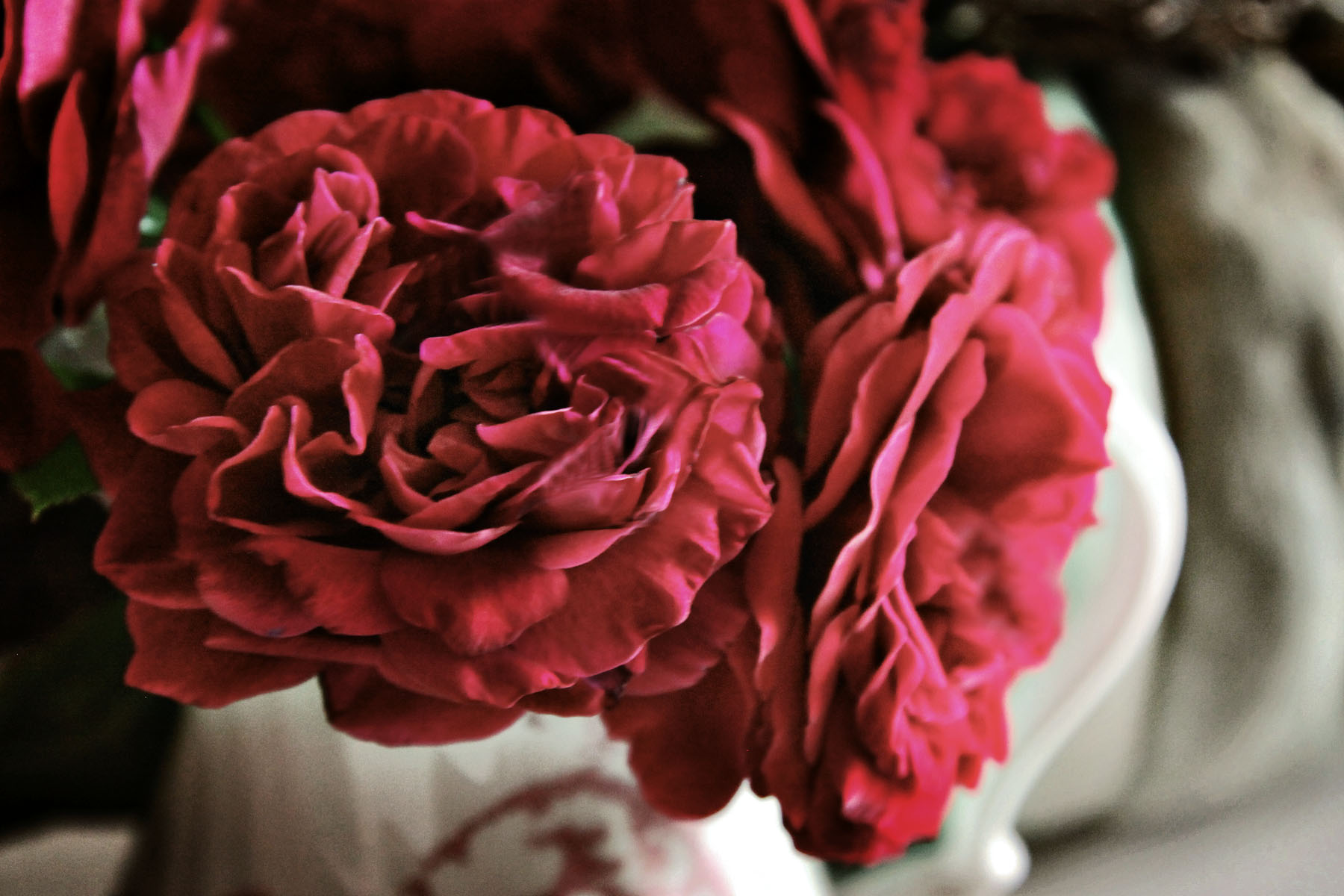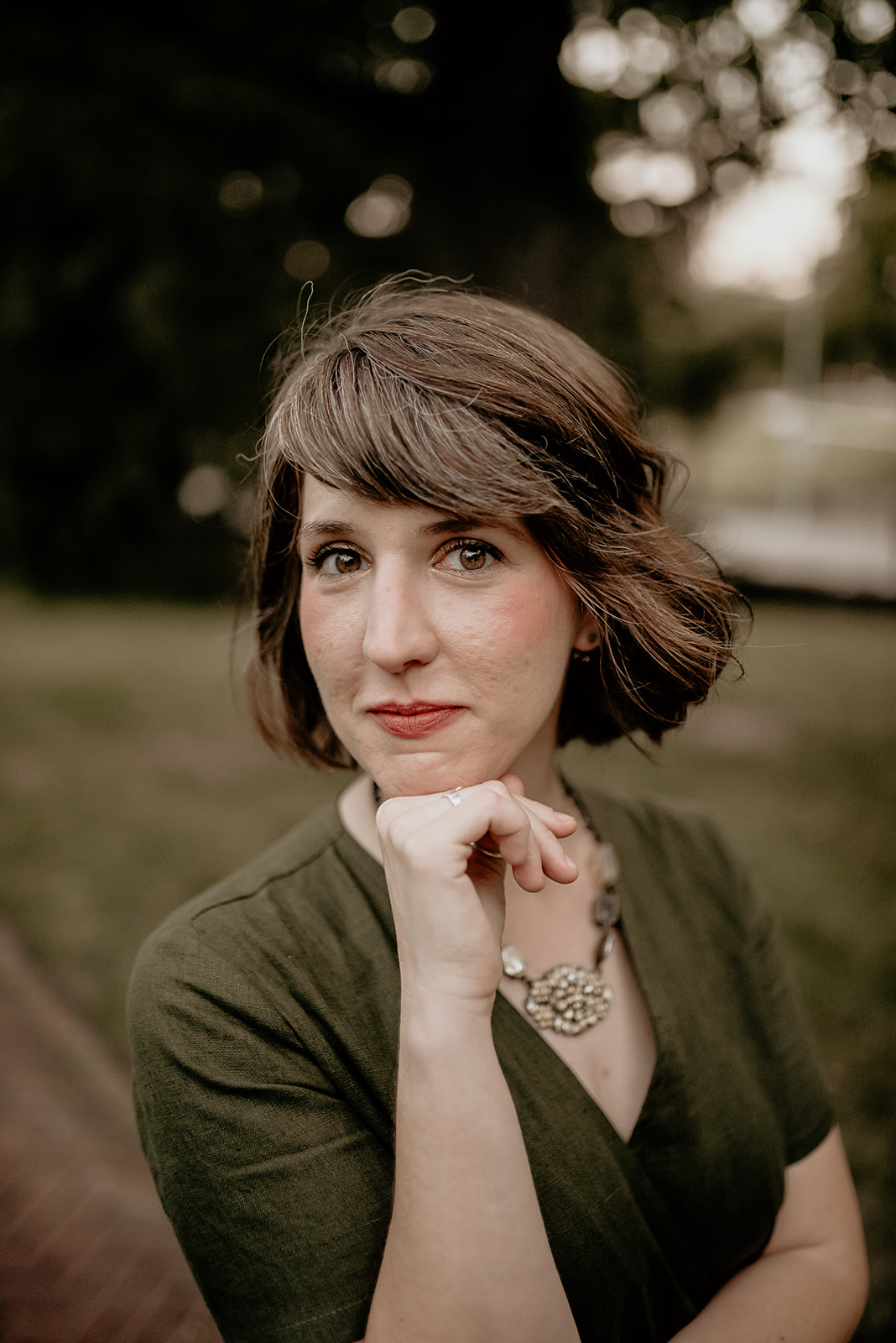Hunger is hard and time is tough,
But bless the beggars and kiss the kings,
For hope has broken the heart of things,
And nothing was ever praised enough.
— G.K. Chesterton
The line of customers at my register had dwindled for the moment, so, after tidying my counter, I paused for a breath and looked around—and that’s when I saw her. True, she was on the other side of the retail space and a table full of terrariums was between us, but I had seen that profile far too often to be mistaken. Her fair hair was pulled back into a neat ponytail and she was wearing pearls and lavender slacks cropped to the ankle; she was also pushing a baby pram while two little girls in hair bows skipped behind her. I turned away quickly, hoping that if I kept my back to her long enough, she’d pass by without recognizing me. After all, it had been a long time since we’d been friends.
The truth was, I was feeling insecure. A few months earlier I had quit the only paying job I’d ever had—a copyediting position I’d held practically ever since college—without having another job lined up. I’d applied and interviewed for a number of full-time positions, but, just to be on the safe side, had also applied for part-time positions I thought might be fun. The garden center down the street from my house had offered me a job on the spot, despite my total lack of retail experience, and I’d accepted … though I was really hoping my dream employer would extend an offer before then. After all, they’d narrowed the field down to two candidates. But days had gone by, and then weeks, with no decision from them. And then, on the morning of my orientation at the garden center, I had checked my email one last time before getting out of my car and saw the message I had been waiting for. “Dear Amelia,” it had said, “we regret to inform you that we have decided to go another direction …” So I walked into the store and became a part-time cashier.
It is hard to start all over again. It is hard to be a beginner again, to once more be bad at something. It is hard not knowing where you’re going to end up—and it is hard to no longer know who you are. When I caught sight of that former childhood friend across the store, envy and shame welled up within me. Envy that she had apparently “arrived” at the stage in life I longed to inhabit, shame lest she recognize me in my sweatshirt and stocking cap and think this was all I’d ever amounted to.
I was relieved when she and her be-ribboned girls finally left the store.
Thanks be to God that He never leaves us as we are.
The first week or two following that close encounter, things were sometimes still emotionally rough—not only was it my first time in a customer service–oriented role, but it also was the first time in two years that I’d worked away from home. But as time went by and I got used to my surroundings, I started paying closer attention to the attitude with which many of my coworkers performed their tasks. There was Patrick, who cleaned the bathrooms with efficiency yet always left them sparkling (and taught me how to clean them, too). Marie, the lead cashier, made boxing up customers’ flowers into a fine art that gave maximum protection to the plants while using as little packaging as possible in order to save the family-run business some money. The gracious and unflappable Amber always seemed patient no matter how demanding the customers were, and Anna was infinitely helpful and endlessly chipper. Jillian the merchandising expert created thoughtful, inviting displays—and also was ready to jump in and box plants for overwhelmed cashiers, asking “How are you doing?” with the genuine desire to know. You could tell they all took pride in their work—not because it made them look good, but because it made our customers feel seen, welcomed, and valued. The next time it was my turn to clean the bathrooms I found myself thinking, “How would I want this to look if I knew my granny was going to use it?” I applied the elbow grease accordingly.
As the weeks went by, I felt my attitude shifting from one of embarrassment to one of gratitude. So many customers came up to my register, smiled, and said, “This is my happy place,” as they drank in the beauty all around us. I felt privileged to spend most of my week in these surroundings, learning more about gardening than I ever would have just puttering around on my own. And I wanted to do everything in my power to preserve that sense of our being a “happy place” for those who needed one. I began to view my role as cashier as a way to show hospitality, both to customers and to coworkers. It became fun to recognize friends, neighbors, and old acquaintances who came into the store. Instead of being afraid they’d notice me, I was delighted to find out that they came to us for their flowers.
This new perspective gave me hope; if nothing was wasted in God’s economy, then every cheerful interaction with a customer, every careful sweep of the floor and scrub of the toilets was a way to show His love and care for them. I realized that misplaced pride had made me think that my job didn’t count for much and that therefore I didn’t count for much—that part-time seasonal cashiers had somehow failed at life while the June Cleaveresque mothers of toddlers were obviously the ones who had their act together. When God broke the pride of my misplaced hope, He began to put me back together again with a newfound hope, one that believed He was indeed bringing about good beyond what my eyes could see—and that I could trust Him despite all the unknowns.
As the slow, hot summer dwindled toward autumn, I realized that, as much as I liked working at the garden center, it wasn’t going to pay the bills long-term. I started praying about what God might have me do next. Then one day, when I’d sat down in the break room with my lunch and pulled out my phone, I saw a message from the hiring manager at my dream employer: “Are you still interested in full-time work as a copyeditor?”
“Now to him who is able to do far more abundantly than all that we ask or think, according to the power at work within us, to him be glory in the church and in Christ Jesus throughout all generations, forever and ever. Amen.” – Ephesians 3:20-21 (ESV)
![]()
The featured image, “Braveheart 2,” is courtesy of Lancia E. Smith and is used with her glad permission for Cultivating.
Amelia M. Freidline lives in the Kansas City suburbs with her parents and a feisty wee terrier named for the tallest mountain in Scotland. She studied journalism, English, and history at the University of Kansas and has worked as a word herder and comma wrangler in food media throughout her professional career. She’s a founding member of The Poetry Pub and has helped edit poetry collections for Bandersnatch Books. She is an amateur poet and writer, a photographer of faeryland, and a wielder of butter, and has self-published several small collections of original writing and photography. Raised on Lewis, Tolkien, Chesterton, Sayers, Conan Doyle and Wodehouse, Amelia hopes to be British if she grows up. She enjoys trees, adventures, marmalade, and great conversations. She loves Jesus because He loved her first.
Leave a Reply
A Field Guide to Cultivating ~ Essentials to Cultivating a Whole Life, Rooted in Christ, and Flourishing in Fellowship
Enjoy our gift to you as our Welcome to Cultivating! Discover the purpose of The Cultivating Project, and how you might find a "What, you too?" experience here with this fellowship of makers!


Add a comment
0 Comments